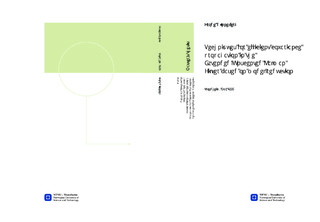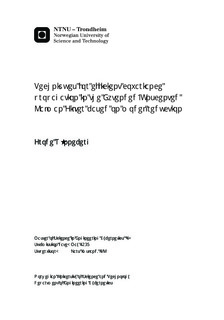| dc.description.abstract | Physical processes gives engineers and researchers challenging task, such as modeling, simulation and control. One of the most important steps in these procedures are the ability to predict the systems behavior, which due to the sizeand complexity of the models often are computationally expensive. A too highcomputational cost may lead to delays in necessary information, interruptionsin production systems, loss of nances, or even worse, loss of lives. Thus, nding more ecient way of predicting the behavior of physical processes are ofparticular interest.This thesis presents a new approach of improving the eciency in the Extended Kalman Filter (EKF) and Unscented Kalman Filter (UKF) through theuse of techniques from model reduction. By reducing the main bulk of complexity, given by the covariance propagation in the EKF and the calculation of thesigma points in the UKF, while the full model is used for state propagation andthe unscented transformation, respectively, the computational effort is reduced.A one and two dimensional heat conduction model with 400 and 1452 statesare introduced. The reduced order model is obtained by applying the Galerkinprojection based on a Proper Orthogonal Decomposition (POD) reduced-orderbasis or balanced truncation by empirical Gramians. The physical processes aresimulated for several possible scenarios of errors one may encounter, to see howthe estimation result is affected.The time complexity in the new approach is shown to be similar to theexisting reduced approaches of state estimation, while only using the reducedmodel in the bulk of complexity. It also show a signicantly improvement overthe original algorithms, given that the subspace conguration in the reducedmodel not exceeds a certain percentage of the full space. The derived EKFshow great promise for a wide range of subspace congurations, except for inthe case of induced model errors. The derived UKF has in general shown greatpromise for subspace congurations larger than one sixteenth of the full space,and for all subspace congurations in the case of model errors, independent ofthe magnitude of the error.The new approach show great promise for improving the eciency in theEKF and UKF through model reduction, without losing too much informationin the process | nb_NO |

